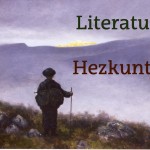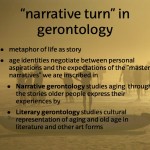 I’m just back from a great conference at the University of La Laguna, on Vulnerability, Justice and Global Ethics. I have been off the bioethics frontline for a while and conferences help us all touching base again, recovering an awareness of what is going on in the field, what the main challenges are and how can they be tackled. I am really grateful to the organising committee, as well as to all the colleagues and friends whom I met in these two days, for doing all the hard work necessary for this conference to happen. This conference was particularly hospitable and well-run. Continue reading
I’m just back from a great conference at the University of La Laguna, on Vulnerability, Justice and Global Ethics. I have been off the bioethics frontline for a while and conferences help us all touching base again, recovering an awareness of what is going on in the field, what the main challenges are and how can they be tackled. I am really grateful to the organising committee, as well as to all the colleagues and friends whom I met in these two days, for doing all the hard work necessary for this conference to happen. This conference was particularly hospitable and well-run. Continue reading
Tag Archives: healthcare ethics
Por qué hacen falta profesionales de la filosofía en los comités de ética
En Granada di una clase pero también grabamos una sesión sobre profesionalización de la filosofía y una breve conversación con Elvira Pertega, en la que tal vez yo hablé de más:
Creo que merece la pena continuar con este tema, porque aunque la pertenencia a un comité de ética no es una profesión en sentido estricto (la filosofía sí), en torno a los comités hay oportunidades laborales para filósofas/os. Estas nuevas salidas amplían nuestras vías de profesionalización, tradicionalmente orientadas hacia la docencia universitaria y en secundaria, pero no están institucionalizadas como ellas, no son inmediatas, sino que hay que crearlas. Para ello, la mejor vía que conozco es precisamente la investigación. Al investigar (a nivel pre y post doctoral) podemos descubrir oportunidades de crear servicios especializados en los que trabajar como profesionales de la filosofía.
Intensive Course: Exploring Bioethics through Film
 UNIVERSITY OF THE BASQUE COUNTRY (UPV/EHU), DONOSTIA – SAN SEBASTIAN, MAY 9-19, 2016
UNIVERSITY OF THE BASQUE COUNTRY (UPV/EHU), DONOSTIA – SAN SEBASTIAN, MAY 9-19, 2016
This is the 2nd time we host this international program in collaboration with Case Western Reserve University. Taught by faculty from CWRU and UPV/EHU this course offers students a cross-cultural perspective on bioethics in the United States and Spain. This course uses the medium of film, complemented by readings in bioethics, film criticism, and medical research, to introduce students to a number of compelling bioethics issues. Attendance to HEFA (Faculty of Education, Philosophy, and Anthropology) activities free of charge for IAS-Research members, UPV/EHU researchers, “Filosofía, Ciencia y Valores / Filosofia, Zientzia eta Balioak” master students and anyone who expresses an interest on the topic. Free registration and more info: antonio.casado@ehu.eus.
Continue reading
More on narrative ethics in health care
 “Enduring tedium over real time in a confined space is what real courage is.” (David Foster Wallace). Well, academics know about this kind of courage, but the quote comes from an article using a short story by DFW to illuminate narrative autonomy in health care.You can download the full text here by courtesy of Cambridge University Press.
“Enduring tedium over real time in a confined space is what real courage is.” (David Foster Wallace). Well, academics know about this kind of courage, but the quote comes from an article using a short story by DFW to illuminate narrative autonomy in health care.You can download the full text here by courtesy of Cambridge University Press.
Active and healthy ageing
Ageing is one of the main challenges of our time. We live longer, but for this to be a real achievement it has to be better understood and socialised. Active and Healthy Ageing (AHA) is a complex phenomenon and it requires a multidisciplinary approach such as the one SIforAGE is providing in Europe.
That’s why last Friday SIforAGE, GISME and Jakiunde organised a public seminar in the framework of the Krisiak project, aiming at understanding crises as opportunities to develop social innovation, creativity and social change.
Bioethics, literature, & narrative autonomy
Last summer we spent two very good months at the Philosophy Department, University of Bristol. Their wonderful hospitality made it possible for me to finish an edited volume that is forthcoming, and also this article, which I presented in a workshop there and has just been published in Cambridge Quarterly of Healthcare Ethics, first view. Continue reading
Un andamio para construir valores
Este mes de diciembre colaboraré con un grupo de trabajo formado por profesionales de Osakidetza en una innovadora actividad formativa. A partir de su experiencia y compromiso con los valores de la sociedad guipuzcoana, vamos a adquirir las competencias necesarias para diseñar una intervención mesoética centrada en el Hospital Donostia. Este es el plan que propongo para la primera reunión. Continue reading
50 años de bioética
Aunque el término no estuviera en circulación, muchos sostenemos que esto de la bioética comenzó hace medio siglo, cuando el famoso comité de legos de Seattle. Ya lo hemos mencionado aquí, pero por si acaso recuerdo algunas fechas señaladas (en mi libro Bioética para legos).
- 1962: Se da a conocer un comité (creado en 1961 en Seattle, estado de Washington) para decidir qué pacientes tenían preferencia para beneficiarse de la entonces reciente máquina de hemodiálisis.
- 1966: Henry K. Beecher publica un artículo denunciando 22 casos que violaban de alguna forma los criterios éticos básicos en los estudios clínicos con sujetos humanos.
- 1967: Los primeros trasplantes de corazón plantean el problema de cómo definir la muerte; en 1968 se publican los criterios de Harvard para el cese irreversible de las funciones cerebrales.
- 1969: Luis Kutner publica un artículo proponiendo el “testamento vital” [living will] para facilitar los derechos de los enfermos terminales a controlar las decisiones que afectan a su cuidado médico.



